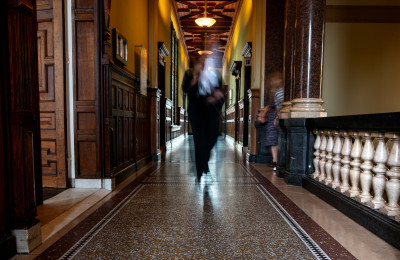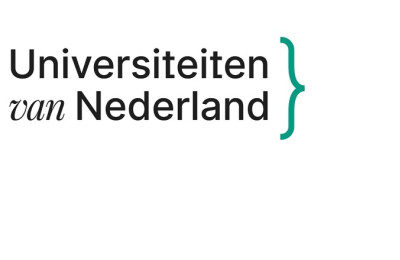Universities to systematically improve social safety
Topical

Contact

Dutch universities will do even more to improve social safety in their institutes. On 14 May, the Labour Inspectorate presented a study on undesirable behaviour, workload and working hours that showed, among other things, that more than half of all academic staff had experienced undesirable behaviour in the past two years. Universities of the Netherlands (UNL) is shocked by these results. Rianne Letschert, president of the Executive Board of Maastricht University on behalf of UNL: ‘It is unacceptable that so many employees should have to deal with undesirable behaviour. A safe working environment is not only a fundamental right of all staff and students, but also an essential prerequisite for high-quality education and research.’
Contact

Social safety and workloads at universities are major issues and are also partly related to how academia is organised. For instance, universities have traditionally been organised hierarchically, individual research achievements and grants play an important role in careers, having a strong specialisation can make it difficult to switch to another workplace and diversity and inclusiveness are still too often lacking. Strong relationships of dependency often exist. This also calls for greater efforts to bring about a fundamental culture change to improve social safety and workload in universities. This is also reflected in the advisory reports by Naomi Ellemers of the Royal Netherlands Academy of Arts and Sciences (KNAW) and Government Commissioner Mariëtte Hamer.
Universities have taken several steps in recent years, including increased attention to and training courses for good leadership, the creation of low-threshold hotlines for reporting undesirable behaviour and the establishment of ombudspersons and confidential advisers. Universities have also taken the first steps towards a culture change in academia with the national Recognition & Rewards programme. The latter programme has identified leadership and collaboration as key spearheads with clear outcome commitments to which all 14 universities have committed.
Although we are already observing positive effects, this has unfortunately not yet led to the desired improvement in social safety and workload. Regarding social safety, universities will start reflecting on this in order to introduce and accelerate systematic improvements. ‘We need to work with everyone in the academic community to ensure that universities are a safe working environment. We are already doing a lot, but it is still not enough. That is why we will work with all universities to achieve this culture change’, Letschert said. Implementing major desired changes will entail a major cultural shift and will likely take several years, so effects cannot always be measured in the shorter term. A commitment to prevention and proper monitoring and adjustment of policies are crucial here.
UNL is taking an important step by contributing to the Ministry of Education, Culture and Science's Social Safety covenant and will play a major role in the Ministry’s four-year Social Safety programme. In this programme, administrators, researchers, employee organisations and students will work with the Ministry to develop a joint integrated approach to promoting social safety. The Ministry will provide four million euros a year for this. In addition to cooperation in the Education, Culture and Science programme, universities will also work more closely with each other in the National Social Safety Network.
Ellemers' report shows that prevention should be a greater priority in drawing up policy. Social safety only really improves by making workplace behaviour a topic of conversation on a structural basis. All universities are therefore going to facilitate the dialogue on this as much as possible within their own institutes in the near future. Additional efforts are also being made to reduce workloads and increase relevant knowledge exchange between universities.
Labour Inspectorate resultsThe Labour Inspectorate visited 14 universities in 2023 and conducted an online survey of all academic and teaching staff. More than 9,000 respondents completed this survey. Of the respondents, 55% said they had experienced undesirable behaviour in the past two years and 34% said they had been discriminated against in the past two years. The problems outlined are not new. Earlier reports by Naomi Ellemers of the KNAW and Government Commissioner for combating inappropriate behaviour and sexual violence Mariëtte Hamer, among other things, showed that more needs to be done to improve social safety at universities. |


